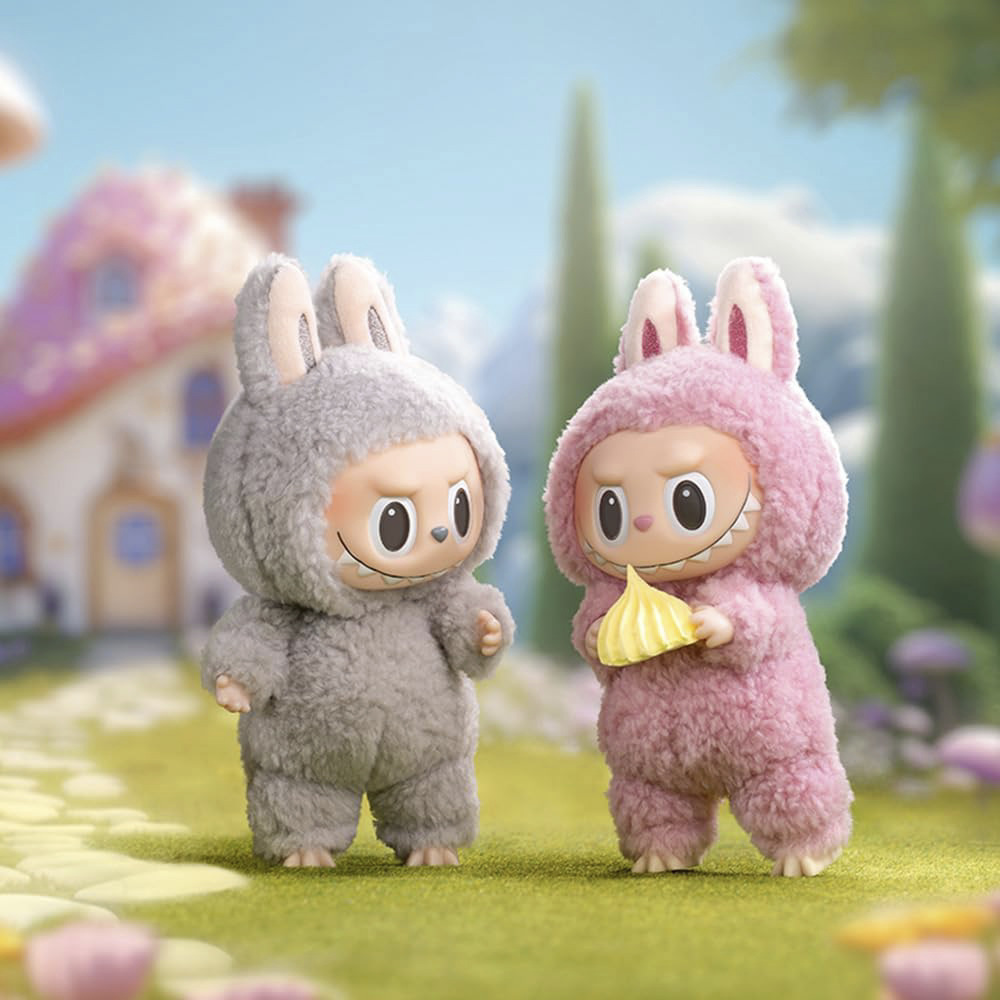One of the store clerks explains that there is a three-month waiting list to buy a plush toy dressed as a rabbit, with pointed ears, big eyes, and sharp teeth. The Labubu, the trendy toy, is the main attraction at the world's largest Pop Mart, a four-story building on a popular shopping street in downtown Shanghai. Although it cannot be physically purchased in the store, five of these plush toys of different sizes are displayed on a shelf for customers to touch and take photos with.
"Where can I get an original Labubu?", asks a girl who entered the temple of the giant Chinese toy company Pop Mart with high expectations. This same question has been going viral on Chinese social media throughout this month. "The other day, a company posted an ad selling appliances and giving away a Labubu with every large order. They sold out within hours," a shopper recounts in the store.
In recent months, these plush toys have sparked a buying frenzy worldwide. In the UK in May, chaotic scenes in store lines to buy a Labubu, including fights, led the Pop Mart distributor to temporarily suspend sales. But in its country of origin, the phenomenon is such that even counterfeit versions are selling out on e-commerce platforms.
From Dongguan, a major manufacturing center in southern China, some of the counterfeit titans have stated that they cannot meet the high demand for identical imitations of Labubu selling for around 30 yuan (approximately 3.60 euros), while the original toothy 17-centimeter plush toy costs 99 yuan (almost 12 euros). Resale prices of the original can reach hundreds of euros.
The bustling Pop Mart store in Shanghai is filled with eager buyers taking photos with the Labubu. Unable to buy one, many settle for purchasing other palm-sized dolls sold in what are known as "blind boxes." Behind this success story is a millennial entrepreneur, Wang Ning (38 years old), who built an empire thanks to a series of vending machines selling surprise figures inside a box.
Wang had worked in advertising companies before opening a small toy store in Beijing in 2010. But the business took off when he popularized the concept of "blind boxes" four years later and began placing his vending machines in over twenty countries. Pop Mart's shares have risen by 81% this year, and the company's revenues soared by 107% in 2024, reaching 1.5 billion euros. Wang, whose fortune has significantly increased (a net worth of 22.7 billion dollars, according to the latest Forbes update), is now China's youngest billionaire.
The Labubu, designed by the Hong Kong artist Kasing Lung (who explained that he based its creation on characters from Norse mythology), is also sold in surprise boxes. In China's second-hand market, some collector plush toys are being sold for over 1,000 euros. Last week in Beijing, a giant Labubu (almost 40 centimeters) was auctioned for around 130,000 euros.
On Douyin, the Chinese version of TikTok, there are numerous videos of influencers carrying their Labubu as keychains on luxury bags and dressing the plush toy in branded clothing, from a Louis Vuitton jacket to Ralph Lauren. Others adorn the toy with gold jewelry and stick diamonds on its sharp teeth.
Some Chinese banks started offering a Labubu to customers depositing at least 50,000 yuan (6,000 euros) for a three-month fixed term. For those also applying for a credit card, a plush toy from the latest series launched in April was offered. In response, authorities decided earlier this month to prohibit state banks from attracting customers with these gifts.
A few days ago, the two flagship newspapers of the ruling Communist Party, People's Daily and Qiushi, published articles dedicated to the viral toy and its global impact, highlighting that Labubu is another example of how Chinese cultural influence is expanding through acclaimed products like the successful video game Black Myth: Wukong and the animated film Ne Zha 2, the highest-grossing animated film in history.
"The furry nine-toothed elf created by the Chinese toy manufacturer Pop Mart has become a symbol of Chinese pop culture expanding overseas," stated the People's Daily. Several animated series featuring Labubu as the protagonist have already been launched in China.
"The global fan base of the wide-mouthed, big-eyed toy is evidence of a shift in China's priorities as the country transforms from a producer of low-value goods to an innovation hub," read the note in Qiushi, boasting that the Asian giant "is increasingly serving as a global incubator where seeds of creativity are sprouting everywhere."
Chinese state newspapers have also reported that there is so much demand for Labubu domestically that smuggling networks are buying toys abroad and reselling them in China. Last week, customs authorities confiscated 318 plush toys from three travelers at Changsha airport in southern China.
These dolls were first released in 2019 as part of Pop Mart's The Monsters series and began to gain popularity when Lisa from the K-pop group Blackpink was photographed carrying a Labubu on her luxury bag. Subsequently, the toy's popularity soared thanks to other global stars like Rihanna and Dua Lipa. Even David Beckham posted a photo on Instagram with a Labubu attached to his bag.
